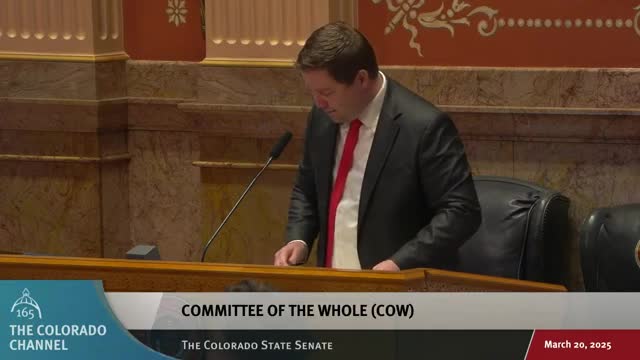Article not found
This article is no longer available. But don't worry—we've gathered other articles that discuss the same topic.

Senate adopts committee reports, places multiple bills and appointments on consent calendar

Senate concurs with House amendments and repasses bill letting municipal utilities join unclaimed deposits program

Senate approves change to economic‑loss rule to expand negligence claims for first homeowners

